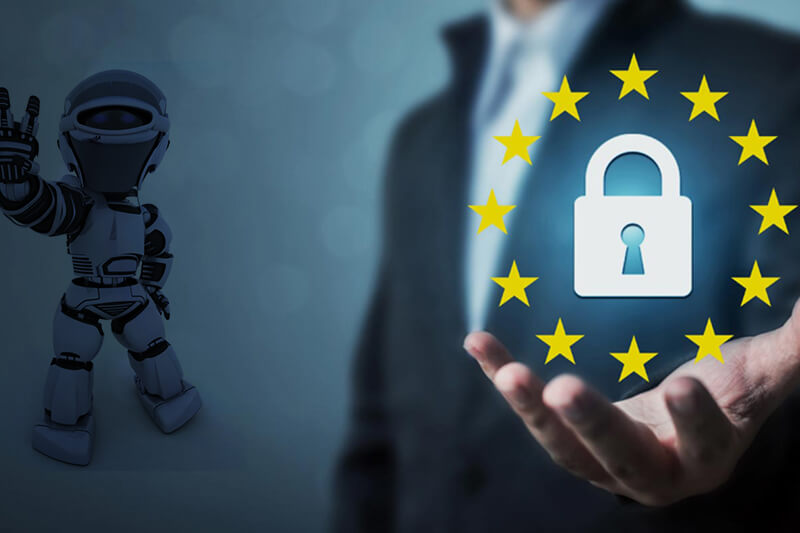GDPR Compliance- Using Machine Learning to Enhance Privacy

In the current global tech market, many companies have their data scattered across multiple networks, for a lot of business (personal) data processing is a significant activity. “Personal data”- it might be any information relating to an individual’s private, professional, or public life which is used, shared and transferred around the globe instantaneously, making it difficult for people to secure their personal information. Even governments also have a security interest in ensuring the protection of personal data as they can see breaching of highly sensitive personal data. Now it’s the time for such organizations have likely identified the process changes they need to ensure compliance. if not, you better hurry
GDPR is the recent reminder compliance comes with a high level of awareness and a comprehensive data management strategy. GDPR is applicable to all members of the EU and EEA from May 25, 2018, and to all companies handling the consumer data of citizens within the European Union (EU), no matter the size, industry or country of origin of the business. Also keep in mind If a firm infringes on provisions of the GDPR it can be penalized up to €10 million, or 2% of the worldwide annual revenue of the prior financial year for the lower level and in the upper level Up to €20 million, or 4% of the worldwide annual revenue of the prior financial year.
Ever wondered! is there any “solution for sensitive data protection?” Adapting to GDPR compliance? also enhancing security…? Ai with ML serves the right purpose by solving cybersecurity problems using computerized analytical processes adhering to GDPR compliance. As the market for enhanced security and privacy grows.
Here are the key roles of machine learning in enhancing data privacy
• Machine learning-driven solutions will provide services without exposing PII (personally identifiable information) that can lead to misuse a person’s identity, such as the name and the surname, or the IP address in combination with the physical address
• Machine Learning models can effectively analyze huge data sets in real time to detect specific patterns, anomalies, and trends. Analyses every single packet where all the sensitive information and potential, PII is being stored
• Machine Learning works well with GDPR’s, uses algorithms to analyze patterns in data, therefore minimizing the need for human supervision and PII exposure
Here are the examples relates and showcases how Machine learning helps in meeting GDPR compliance
• AI can help understand the GDPR and any update or act stemming subsequent or regulation from it. NLP (Natural Language Processing) solutions can read an interpret regulations and analyze actually what the document is about and what changes to the law affect privacy and who are the stakeholders involved, etc. Furthermore, NPL combined with ML can upgrade the game because the latter one requires machine-executable functions.
• Data breaches and fraud becoming a serious issue, can be controlled by AI-powered security analytics. Advancing quickly and representing an unmissable opportunity to improve cybersecurity. In particular, ML can detect advance threats (detects behavioral changes), and also eliminate a large number of manual tasks.
Machine learning will be the most viable solution to the current issues of security, privacy and end-user protection and more than that people are becoming more aware on the risks that being online brings. So, where is your business in the GDPR compliance game? Our idea is to make businesses and governments more accountable for their data and the way they use it. Get to know more about our services in supporting GDPR compliance Reach us….
Together, we can build a secured machine learning solution for the right to protection of personal data.
